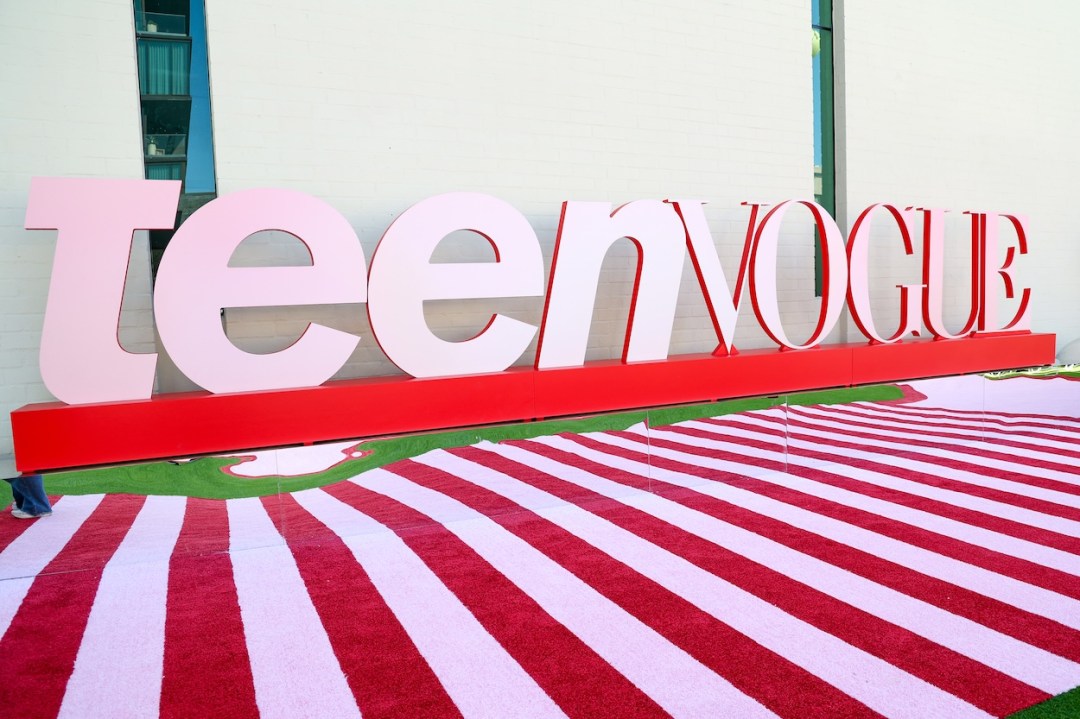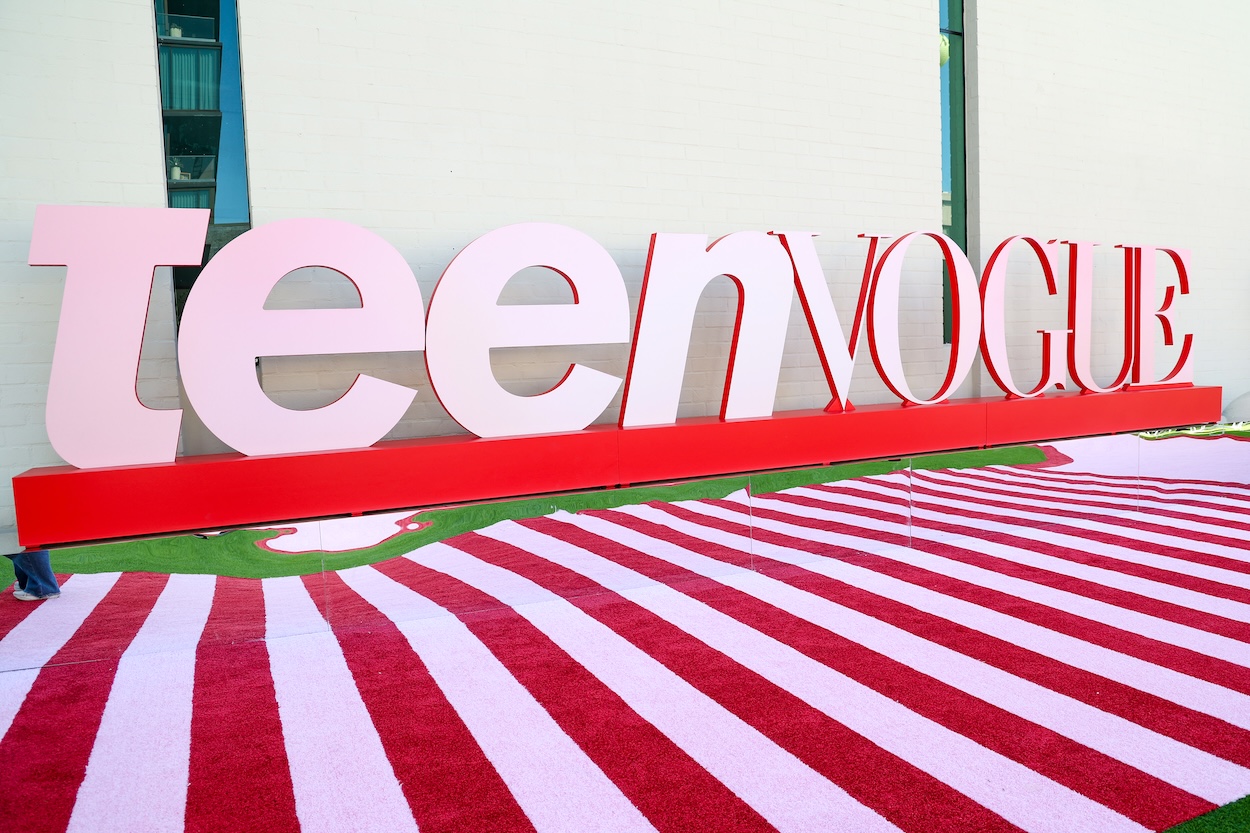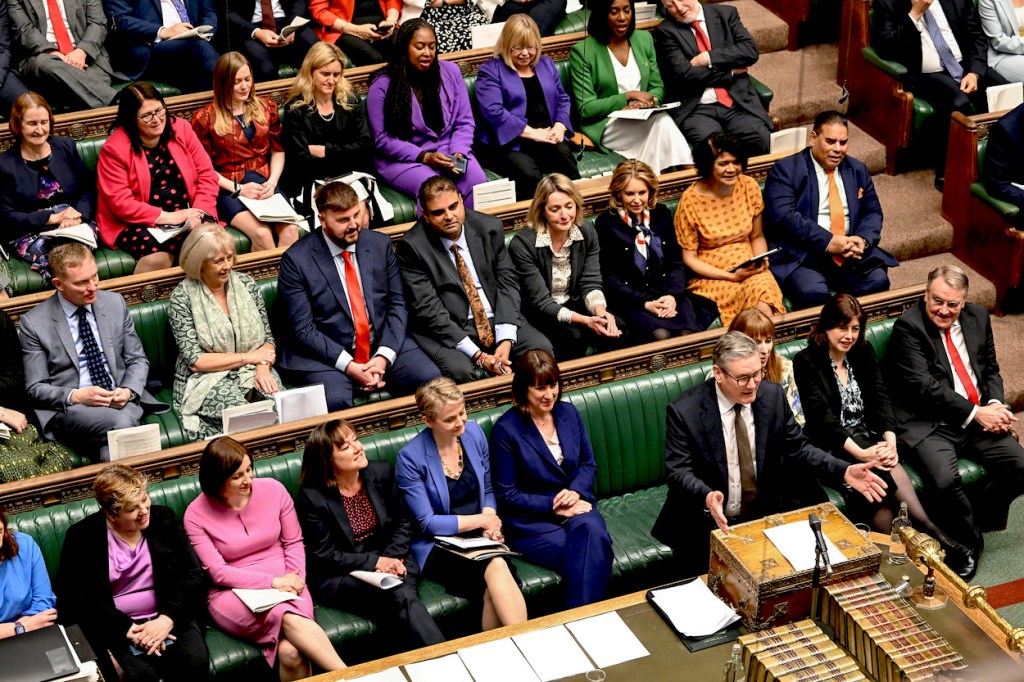Teen Vogue published ‘9 Climate Activists of Colour You Should Know’ in January 2020. The article already seems like it belongs to a lost world, which is perhaps why Teen Vogue ceased publishing this month. It is an artefact of those frantic Metternichian years from 2020 to about the end of 2023, when Donald Trump was pulled from office and the first wave of populism was declared to have failed. There were firings, criminal investigations, vaccine mandates. ESG was enthroned in the boardroom. Little Amal, a giant frowning puppet of a refugee, made wordless progress through the globe’s capitals, as if on patrol. Superintending all this were activists such as those listed by Teen Vogue. Much like the cast of Eminent Victorians, these people were not central to events but were nevertheless representative of their era.
They tell us, for one thing, that woke is best understood as a reactionary movement. Pre-colonial revivalism is taken for granted; so too is a pre-modern epistemology that is much more drastic in its implications than ‘alternative facts’. Thomas Lopez, then a 24-year-old member of the International Indigenous Youth Council, told Teen Vogue: ‘Instead of listening to the indigenous people who have been here for thousands of years, we take the word of an infant western society’.
What’s often overlooked is how commonplace this kind of rhetoric was at the highest levels of society. The height of woke’s institutional power, lasting from 2020 to 2023, was also the high tide of degrowth, which preached regression to a more settled existence. Jet travel, abundant energy, cheap things from abroad – the physical accoutrements of globalism – all this was first on the chopping block. The pleas for societies to ‘look beyond growth’ were not coming from the populists but from Davos.
Many could barely contain their excitement when lockdown began in March 2020; this – in a slightly sinister phrase – would be our chance to pause, reflect and regroup as a species. What people found so objectionable about odd figures like Klaus Schwab, who came to prominence during these years, was not that he represented dislocating modernity but that he worked for the opposite; his was the gospel of Low Traffic Neighbourhoods, stakeholder-ism, ULEZ.
Woke is hostile to new technology that erodes old solidarities. It damns the internet as a destabilising force. Its attempts to regulate AI during the Biden administration ended with the defection of much of Silicon Valley to MAGA. Entire social movements are dismissed as the work of bots and trolls. The current establishment in Britain is an unwieldy alliance between the City of London and various degrowth Celtic revivalists; experience has shown that woke policy will nearly always tilt towards the latter, towards a general slowing-down in search of greater social cohesion.
Woke is not a revolutionary phenomenon but an administrative one, spread through traditional institutions like schools, old-money philanthropy, universities, bureaucracies and print media. Teen Vogue is the perfect example: a modern imprint of a stately dowager of a magazine, originally founded at the end of the 19th century. In material terms, woke meant a moderate shuffling of personnel within these institutions. People who already agreed with its tenets were promoted.
Young people are woke because they go to university and work out who is in charge
We can also see how institutionalised all of this had become by 2020. There is little pretence of any sort of struggle going on here; the careers of these nine activists of colour are mostly an orderly cursus honorum. Zanagee Artis, founder of Zero Hour, a charity which named ‘colonialism, capitalism, racism and patriarchy as the core causes of the climate crisis’, followed this up with a brief stint at Goldman Sachs. The rest have now made the natural transition into the mid-level officer class of the establishment: one got a legal counsel at her alma mater in North Texas fired and then went on to the University of Chicago; another got a star on Canada’s Walk of Fame; others have since receded into the private sector – like Zeena Abdulkarim (she/her), who now works as a ‘customer experience guide’ for the clothing brand Patagonia.
By and large woke was simply different branches of the establishment interacting with one another. The controversies are rote; the clashes always seem pre-arranged; all the placards for the spontaneous protest had been printed well in advance. The movement’s leadership reflects this essentially bureaucratic character, making increasing recourse to former spies like Abigail Spanberger of Virginia and Sue Gray.
We use erroneous terms like ‘woke mob’ because the story of this era has mostly been told from the point of view of professors cancelled by student activists. These academics were, by and large, of the same generation who had denounced the late James Watson, discoverer of DNA, for suggesting that different demographic exhibit different levels of intelligence. The only thing that had changed was that, for the first time in their lives, they had found themselves on the wrong side of public doctrine. For the thousands of ordinary people fired over trivia, woke was simply another way of being ruled. In the end, it took a world-historical figure like Donald Trump to finally clear the board.
The last lesson? That young people are woke because they go to university and work out who is in charge. Dismissed as dreamers, they are in fact more cynical (this is not necessarily a criticism) than the old. Often dismissed as idealists, young people, with their careers ahead of them, have much more to lose by going against the reigning ideas. Woke campuses are an outgrowth of any moderately intelligent young person’s desire for power. The interviews of these nine activists are revealing in this sense. ‘Activism’ is referenced in the abstract, with the issues themselves very much secondary. This is only right. No one likes our current society; everyone – especially the young – would love the chance to smash things up. Those who would now displace woke should not condemn this desire but offer them some more compelling targets.








Comments